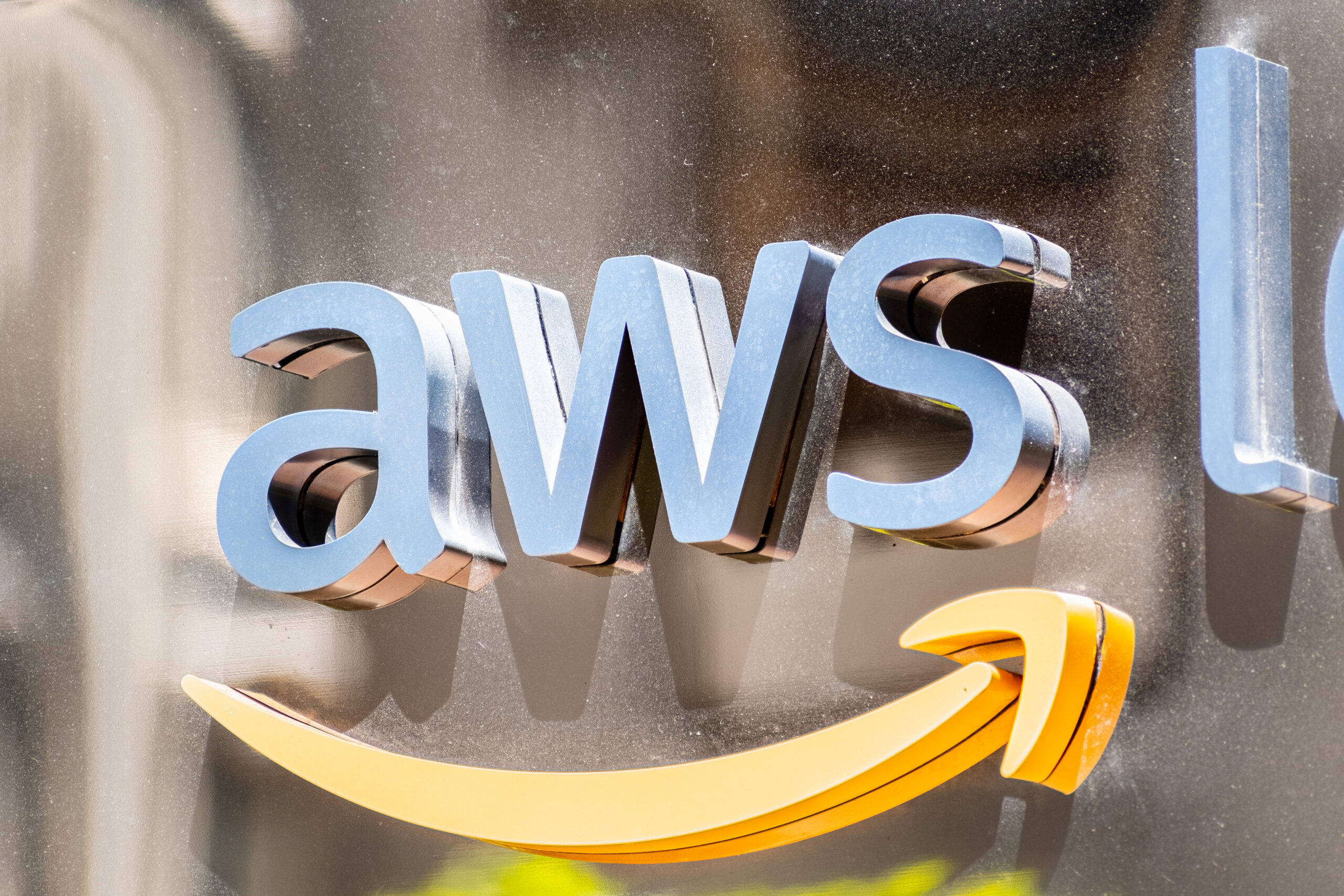Tech that breaks taboos
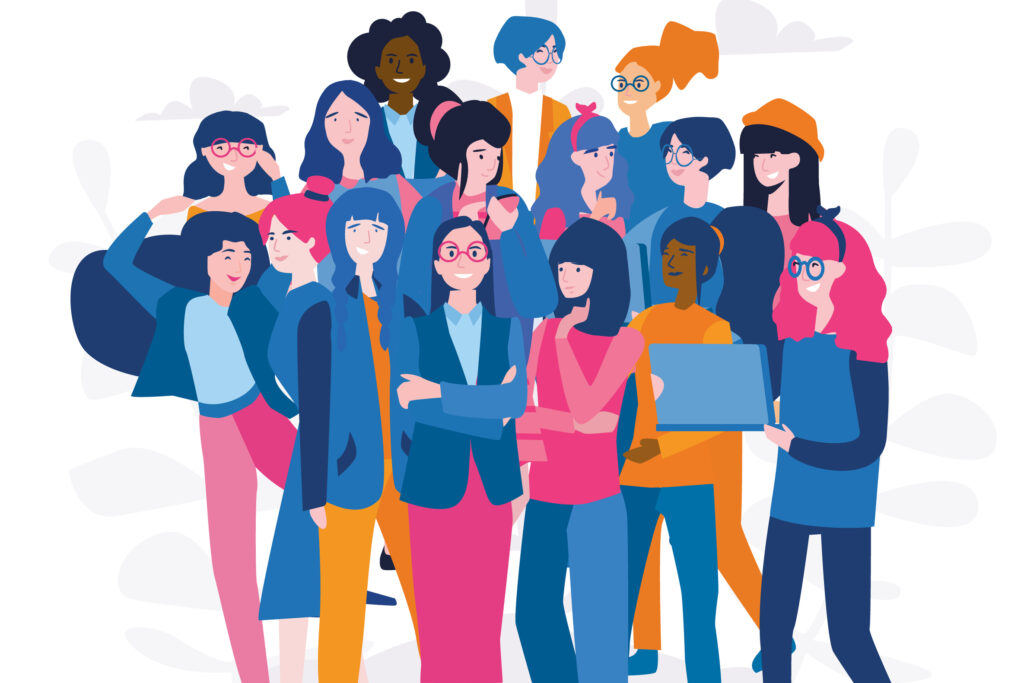
When a nine-year-old girl starts her period in rural Pakistan, she may have no idea what’s happening to her.
Billions of dollars have already been invested in services for girls, from health to education and business, but millions of girls aren’t using them, says non-profit Girl Effect. Either the information doesn’t reach them, they don’t trust it or it just doesn’t seem relevant to them. But as access to mobiles increases, could femtech – tech made for women – offer a better solution?
“Girls in many countries grow up with no knowledge of menstruation or contraception,” says Saba Khalid, a former Pakistani journalist and founder of Aurat Raaj, a user-friendly chatbot educating girls as young as eight about menstrual health and hygiene. “Puberty and menstruation are tied up with child marriages. There are just so many issues associated with women’s bodies.”
Femtech, a term coined six years ago to cover technology services addressing women’s health, has become a burgeoning sector attracting nearly a billion pounds of investment in both 2019 and 2020.
From an early focus on menstrual health and pregnancy, new femtech platforms now offer information about sexual pleasure, fitness or wellbeing. In remote parts of the world, femtech can also unlock basic and life-changing information and confront taboos. In the past year, millions of girls from low and middle-income countries will have stopped school altogether, and so the need to educate them by other means is more urgent than ever.
There already was, according to Khalid, a gap in the information given to girls in Pakistan and elsewhere, as they grow up. This matters – misinformation damages girls’ lives. “No one is starting the conversation on menstruation in time, even when girls start periods before the age of ten,” Khalid says. “They need information before they reach puberty.”
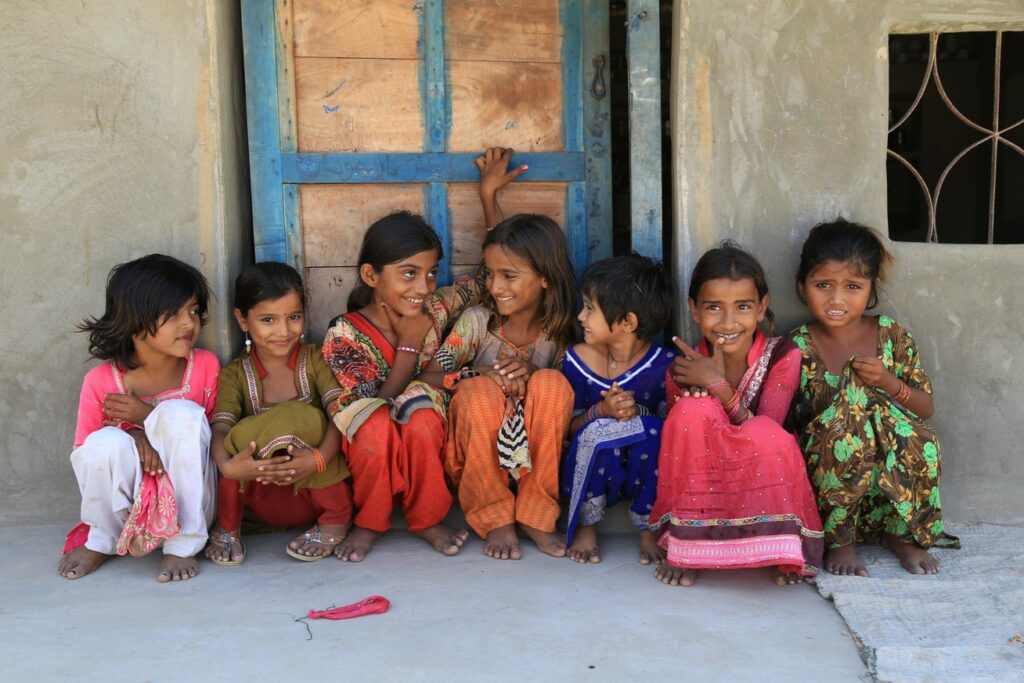
While knowledge on reproduction is low, abortion rates are high. Girls in some parts of the world still use homemade cloth bags rather than modern sanitary products and skip school out of embarrassment. “They won’t go out because they fear they might have a stain,” Khalid says. “There’s a stigma for them. With all of these problems, femtech could really change the situation.”
Prejudice against women during their periods is widespread, and the shame girls feel is present in many places beyond Pakistan. Last year, a conservative Hindu leader in India warned that women who cook while menstruating “would come back as dogs”. In Nepal, girls are kept separate in huts because of the belief that they are dirty during their periods. Some 800 million people menstruate every day and “period poverty” – a lack of information, facilities and products – is well documented.
“Our government and healthcare sector has failed them,” says Khalid, who believes it’s down to innovators to change the status quo. “Information is not provided in the classroom, nor by parents. And that’s a major gap that our chatbot fills.”
But when she launched her app – designed with buttons for those who don’t yet read – it didn’t exactly take off, with just a few thousand downloads on Google Play. “Tech doesn’t work here the way it does in developed countries,” she says.
Khalid, however, has the goal to eventually reach millions of girls with tailor-made information for different communities, and now she’s taking a more personal approach.
Working with teachers before the pandemic and with trusted health advisors since then, she’s finding an audience in rural areas. Community workers help girls to try out her chatbot, designed to be available in local languages, in contrast to the most popular, apps and platforms, which operate only in English. “I wouldn’t get that access on my own in rural areas,” she says. “Their needs and usage patterns are completely different. But this is where the next billion users are coming from.”
“Girls in many countries grow up with no knowledge of menstruation or contraception” Saba Khalid
After a pilot this year in Pakistan, Khalid aims to expand her chatbox to include services in other languages and across other countries. “There’s very encouraging feedback,” says Anjum Malik, Communications Officer at Rural Support Programme Network, which has worked with Pakistani communities for some five years and is now collaborating with Khalid.
Even the men are on board with helping girls learn more about periods – and that’s key. Women are less likely to own a mobile and are 26% less likely to use it for internet access than men, though Khalid finds the girls are as tech-savvy as boys. “Women can’t participate unless they have the support of male household members,” she says. “If we want to stimulate female empowerment, we need to have the men on board.”
While three-quarters of the Pakistani population own a mobile, the gender gap that exists in the country in terms of ownership and usage is the greatest in the world. Outside the larger cities, smartphone penetration is just 51% and only one million school-age children have regular access to digital devices. But phones can still reach rural communities. “If they are more educated and they are leaders in their community, then older women aged 30-35 will have some kind of smartphone,” says Malik.
To date, Khalid and her collaborators have targeted 15,000 users including adolescent girls, teachers and health workers. She’s part of a European-based femtech accelerator, Femtechlab, where she’ll be mentored and coached. Her plan is to perfect an app that will be tailored to local communities and easy to scale. The project will be a commercial rather than charitable venture, funded by schools and commercial businesses.
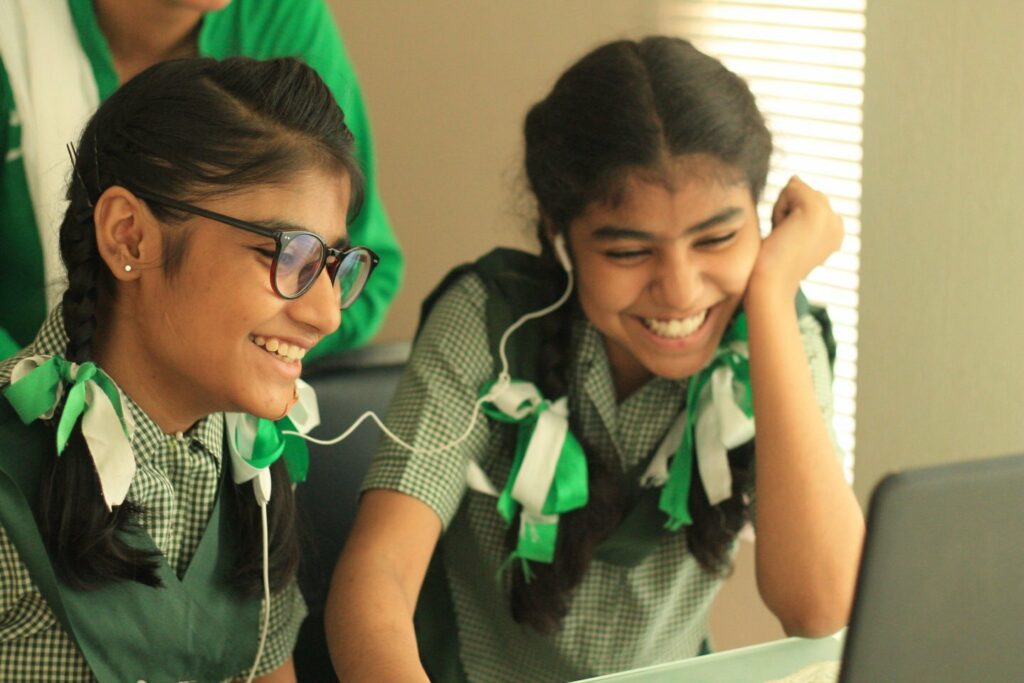
Femtech enables women and girls to keep their worries private – no public clinics or face-to-face consultations. Often, these worries are questions about sex. For this reason, Sanasi Amos, a Nigerian-based sex coach who’s just started offering virtual classes, has launched a helpline and newsletter and is working on an app, called Revaginate. “People shy away from using social media,” she says. “It’s too public and they don’t want anyone to see what they’re asking. They fear they’ll be judged.”
People post questions anonymously on her forum, with women mostly wanting to know about pregnancy, while men often ask about sexual appetites. Her recently-launched free helpline has begun ringing – for many, a phone call is still more accessible than the internet. Amos has great ambitions to smash taboos and reach more African countries, and is even funding her venture from her own pocket. “I want everyone to learn about sex regardless of where they are,” she says.
“Solutions are best created by the people who live and experience issues – in this case, women”, says Lindsey Simmonds. She’s just handpicked nine femtech startups from a mix of African countries to become part of a new Senegal-based accelerator offered by her non-profit Intrepid Entrepreneurs. During a six-month programme, the young women will be offered mentoring, training, strategic support and access to seed funding. It’s the first programme of its kind on the continent and Simmonds hopes to follow with more.
Nearly a third of applicants for her Next Health Accelerator programme are focused on menstrual health – which remains by far the biggest focus of femtech – and the potential impact is huge. “Girls are missing out on education,” she says. “In Africa this is important. 50% of the working-age population will be in Africa by 2035. Currently a quarter of the world’s children live on the continent. If we don’t get girls in school, we’re talking about unskilled labour for them for decades if not generations to come. We’ve got to change that now.”
With over 15 years of experience in philanthropy, Simmonds is familiar with women’s reproductive health programmes in Africa, and this concern is represented in the businesses she’s picked to be part of the programme.
“Sexual and reproductive health issues directly affect 300 million women and girls,” she says. “It’s time for Africans to solve African problems, and time for women to solve women’s problems. We want to foster, inspire and accelerate African business.”
“If we don’t get girls in school, we’re talking about unskilled labour for them for decades if not generations to come. We’ve got to change that now” Lindsey Simmonds
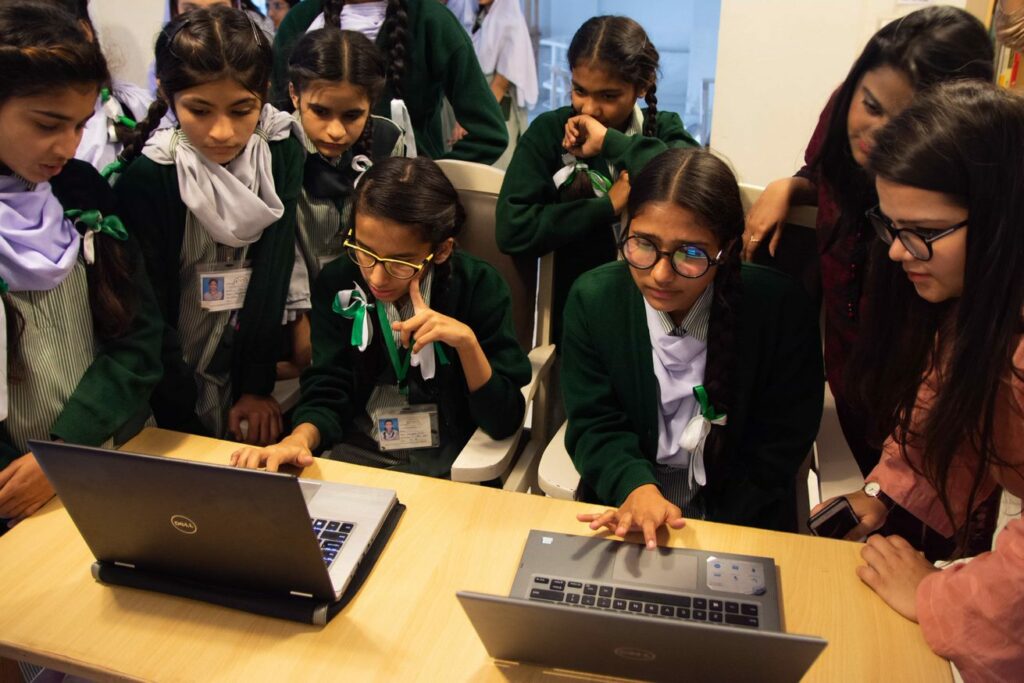
The innovators she’s selected come from all over the continent, including countries such as Kenya, Ghana, Uganda and Rwanda. Some focus on telemedicine and doorstep delivery of medicines, or menstrual hygiene and products, such as eco-friendly sanitary pads made from locally grown bamboo in the Democratic Republic of the Congo. But these entrepreneurs face serious logistical hitches. Internet coverage can be patchy – and prone to government control.
“Our electricity may be cut off,” says Simmonds. “And getting a generator is a pretty big expense when you are starting up. Likewise, it’s often cheaper to import from China rather than manufacture in Africa. So how do we create a logistics system that encourages African products?”
But smartphone penetration across the continent is high, and this could allow countries to “leapfrog” developments in healthcare, just like Africa was able to skip the flip phone and the Blackberry and go straight to the smartphone or jumped into fintech. Health systems in many countries are weak or broken, and health insurance is patchy. “But introducing private telemedicine is actually easier – they don’t face the obstacles they do in the UK or US for instance,” Simmonds says. “And self-care items- such as self-administered contraceptive injections – can be delivered by femtech.”
And tech helps cut costs. Lina Chan founded the digital health platform Parla after she went through a traumatic journey to motherhood. She lost two babies at 25 and eight weeks of pregnancy. Like many founders, she’s influenced by her own experiences and wants to give women information and support to confront taboos around fertility. Born and raised in Brazil, she understands the reach of smartphones, and how this could unlock healthcare access for women. “During the tech revolution, people had better access to a mobile than a landline or kitchen appliance,” she says.
“It’s not only about getting information but about reducing the costs. Clinics are expensive and women’s health issues may not be covered by insurance. Being able to use a tech platform improves access and democratises health.”
What does femtech give girls and women in developing countries? Privacy, education – and input into their own health, says Chan. Allowing women to connect anonymously and overcome cultural barriers and stigma can save lives. And no one can do it better than other women.



